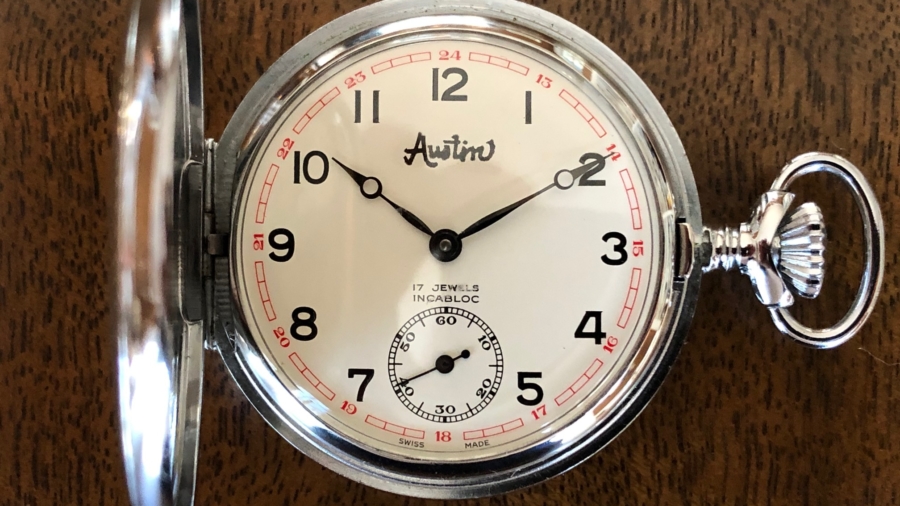You’ve got a film in you. It lurks in your imagination. You are sure it will inspire audiences—maybe even change the world. You are on a creative mission and don’t want to die with your music still in you.
But you know nothing of filmmaking and don’t know a good way to learn. A great way to learn anything is through the time-pressure of stout competition. One such filmmaking competition is the 48 Hour Film Project, the world’s most widespread and oldest timed filmmaking competition. The 48 Hour Film Project (48HFP), created by filmmakers Mark Ruppert and Liz Langston in 2001, originated in Washington, D.C.
In an often-sleepless weekend, teams write, shoot, and edit a four to seven-minute film in 48 hours—typically starting on a Friday night and ending on a Sunday night. During the kick-off night, teams draw a genre from a hat. The producers give teams a character, prop, and line of dialog to include in their films. Approximately a week after submission night, the films are screened at a local theater.
The Co-Producers of the Washington, D.C., incarnation of the competition, filmmakers James Lewis and Stephanie Christancho, came on board as producers of the DC 48 Hour Project in 2017. “Being filmmakers ourselves and former participants we have been able to produce with a filmmaker/participant perspective. We have implemented a couple new ideas and have many more plans for the future,” said Christancho.
“Our first year we were devastated by being late,” said Christancho of her and Lewis’ experience competing. “During the premiere screening, other teams came to us to let us know how much they liked our film. We later submitted that film to another festival and won best in show. Since then we participated several times, our team grew bigger and bigger and we went on to create productions outside of the 48 hours.”
The ideal participant in the 48 Hour Film Project is “someone ready to challenge themself,” said Christancho.
Christancho said the 48 Hour Film Project is open “to all filmmakers, beginners, pre-professionals and pros. The tight deadline of 48 hours puts the focus squarely on the filmmakers—emphasizing creativity and teamwork. While the time limit places an unusual restriction on the filmmakers, it is also liberating by putting an emphasis on doing instead of talking.”
Participants learn time management, team building, creativity and adaptability skills. They must also be organized.
“Things rarely go as planned during the 48 hour weekend,” said Christancho. “Often, plan B or C is better than the original Plan A. Learning to be resourceful is important. If you can make a film in 48 hours, imagine when you take those skills and make a film later in the year with more time.”
The challenges of the competition are many. Christancho said the “biggest challenge is the time limitation and lack of sleep. Some are challenged by the editing and export process. We recommend lots of planning and preparation to make the most out of the 48 hour weekend.”
“The team should meet before the 48 hour weekend to go over equipment, settings, maybe do a test shoot, discuss possible locations, [and] meet with actors. The more you know your team and your team knows each other, the better everyone will perform and get along as you are challenged during the 48 hour weekend.”
When asked about recent winning films that impressed her, Christancho said, “It’s been wonderful to see both brand new teams and returning teams win! Sometimes team leaders are scared to register because they feel intimidated by teams that have participated multiple times but the truth is anyone can win.
“The most important thing is the story! Make us care about your character’s journey! Also, an interesting fact is that for one of our horror competitions the last team to register won the entire competition. It’s never too late to register!”
James and Christancho produced a 48 Hour Film Project science-fiction/horror competition last fall. “We love the sci-fi/horror competition,” said Christancho. “Both these genres make people focus on the story, create tension and spend time in the art direction. All in all, it pushes filmmakers to be even more creative.”
Some of the filmmakers have made money from their entries. A number of the films have been purchased for distribution. Quite a few of the 48 Hour Film Project filmmakers have won other festivals, including SXSW.
“One team won a $100,000 filmmaking package at another festival,” said Christancho. “Quite a few filmmakers have made indie features, and other filmmakers have used their 48HFP experience to get paying work.”
Audiences at the premiere screenings can be sizable. “We often see 200 plus attendees and we’ve even had some sold out screenings,” said Christancho.
Christancho said she and Lewis use approximately four volunteers on average, and filmmakers and actors can participate in the competition while being a volunteer.
The 48 Hour Film Project is an excellent stepping stone for filmmakers. Find out the latest news about it here: http://48hourfilm.com/en/news-articles


Add a Comment